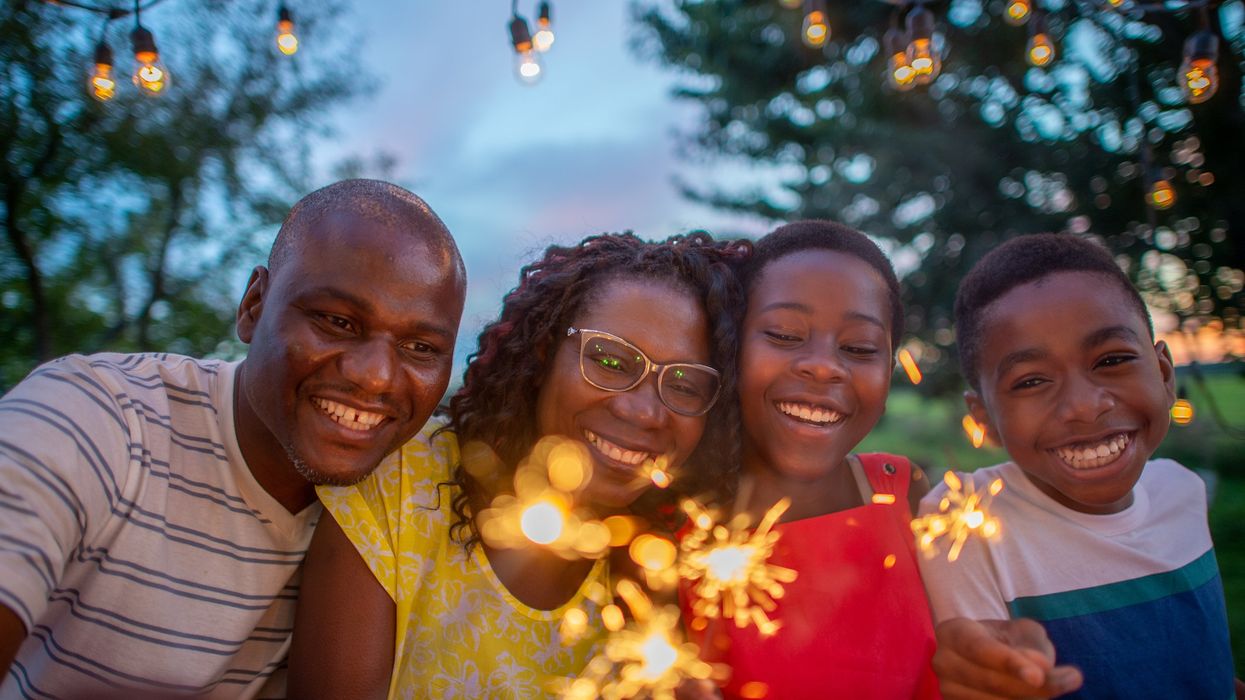
FatCamera/Getty Images

The year is 2024, not 1824. Previous generations didn’t fight for freedom so that millionaire athletes could act like they are oppressed because they play for teams owned by billionaires.
Frederick Douglass is one of the few historical figures who is equally beloved by both the political left and right. He was an abolitionist and a statesman, a serious man who dealt with serious issues. He preached a message of liberation and self-determination. Unfortunately, the only time he is quoted by many people is on Independence Day, when they read his famous speech entitled, “What to the Slave Is the Fourth of July?”
Black people in America are the most free and prosperous people of African descent in the entire world. This is why people from around the globe come here.
The speech drew a sharp contrast between what American independence meant for the descendants of colonial settlers and what it meant for the millions still enslaved in a republic founded on freedom.
The rich inheritance of justice, liberty, prosperity and independence, bequeathed by your fathers, is shared by you, not by me. The sunlight that brought life and healing to you, has brought stripes and death to me. This Fourth of July is yours, not mine. You may rejoice, I must mourn. To drag a man in fetters into the grand illuminated temple of liberty, and call upon him to join you in joyous anthems, were inhuman mockery and sacrilegious irony.
It is a historical fact that African slaves were not free on July 4, 1776. It is easy to see why Frederick Douglass gave the speech he did in 1852, 76 years after the Declaration of Independence was signed and roughly two years after the Fugitive Slave Act became law. While some of the people who cite his speech do so for historical purposes, my sense is that many people read it every July 4 to suggest that America hasn’t really come that far on the issue of race over the last 170 years.
Perhaps people in the second group should ask themselves a different question today, namely, “What to the free man is the Fourth of July?”
The answer to this question is what will determine the future of black America for generations to come. It is hard to thrive in any environment where bitterness, envy, and hatred are the default emotions. America obviously has a complicated history when it comes to race. Our collective past has been used by race scribes, including Ibram X. Kendi and Nikole Hannah-Jones, to argue that the country is irredeemably corrupt and that we need a new founding date, a new anthem, and a new flag. This may feel cathartic to self-styled revolutionaries, but only a fool would destroy the ground he is standing on.
It shouldn’t have to be said, but black people today are not slaves, despite the rantings of millionaire athletes and craven politicians. We are not in shackles, we are not bound to plantations, we do not need to fear the whip and the lash, and our families cannot be broken apart at the whim of our masters. I understand the importance of knowing history, but the ultimate sign of ignorance is promoting Colin Kaepernick’s silly view that the NFL combine is the modern-day slave auction.
Black people in America are the most free and prosperous people of African descent in the entire world. This is why people from around the globe, including Africa and the Caribbean, come here. It’s why my parents left family and friends to move here in the 1980s. Sadly, one of the things I’ve noticed from my peers who grew up entirely in the United States is how quickly some take on the anti-American rhetoric and oppression narrative that is pushed on the black community by corporate media.
Not only can this lead to a sense of resentment from people who should epitomize gratitude, but it is also absurd because all the countries our parents emigrated from have their own complicated history with race and slavery. The Caribbean was basically a chain of European slave colonies well into the 1800s. But that doesn’t stop Jamaicans, Trinidadians, Haitians, or Bajans from wearing and waving their flags at New York’s Labor Day parade, Toronto’s Caribana festival, or any other celebration of Caribbean heritage.
Only black Americans are told to reject their homeland because of its complicated history. A reggae artist holding a Jamaican flag is expected, but Beyoncé waving an American flag on her album cover is seen as problematic by a certain subset of black leftists. This is self-destruction packaged as liberation.
I care about the future of America. I’m invested in it. My wife was born here. My children were born here. It is the only home I have ever known. This is why I reject any attempt to use slavery rhetoric to make me hate the country or see myself as a perpetual victim.
It’s time to end feigned helplessness and selective empowerment. Black people, like all humans, must be active agents of our own uplift. Anyone hanging his hopes of racial equality on bigger government and better white people needs to have his head examined. The year is 2024, not 1824. Previous generations didn’t fight for freedom so that millionaire athletes could act like they are oppressed because they play for teams owned by billionaires. We are not slaves. We are free. It’s time to act like it.
- YouTubewww.youtube.com